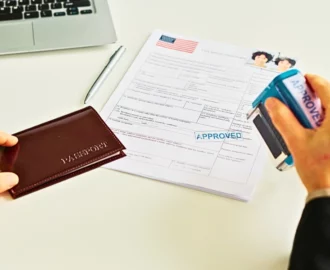Significant financial responsibilities come with immigrant sponsorship if immigrants are unable to support themselves. The U.S. Citizenship and Immigration Services (USCIS) highlights these responsibilities, which could influence immigrants’ ability to obtain citizenship. The USCIS Presidential Memorandum regarding Enforcing the Legal Responsibilities of Sponsors of Aliens in May 2019 states the specific requirements that apply to individuals who have sponsored or will sponsor immigrants, and those who plan to make assets or income available in an effort to help sponsor an immigrant.
Since 1997, the U.S. has required immigrant sponsors to file and sign an Affidavit of Support Under Section 213A of the Immigration and Nationality Act that pledges financial support for immigrants who are sponsored. In the process of signing and submitting either the affidavit or a binding Contract Between Sponsor and Household Member, sponsors are agreeing to utilize finances to support the sponsees appearing on the forms and to cover the cost of means-tested public benefits that sponsees receive when legal agreements are in effect.
Immigrant sponsors may file one of the following affidavits or contracts:
- Form I-864: Affidavit of Support Under Section 213A of the INA
- Form I-864EZ: Affidavit of Support Under Section 213A of the Act
- Form I-864A: Contract Between Sponsor and Household Member
Legal Responsibilities of Sponsors to Reimburse Public Benefits
Occasionally, sponsored immigrants will apply for and receive what are referred to as means-tested public benefits from tribal, local, state, or federal agencies. These benefits can include Medicaid, Temporary Assistance for Needy Families, Supplemental Security Income, and the State Child Health Insurance Program.
In some cases, sponsees will be ineligible for some means-tested public benefits once the agency assesses all assets and resources, along with those of household members, when determining the immigrant’s eligibility through a process known as “income deeming.”
Immigrant sponsors may be responsible for reimbursing these means-tested public benefits if an immigrant appearing on the affidavit receives the benefits when the affidavit is in effect. If the sponsor fails to reimburse the agency, that agency may be able to obtain a court order to ensure that the sponsor repays.
This makes it necessary for immigrant sponsors to make sure that they can reimburse any means-tested public benefits that sponsees receive prior to filing an affidavit or contract. Otherwise, sponsors may face legal repercussions that could, in turn, affect the sponsored immigrants’ ability to obtain citizenship in the U.S.




